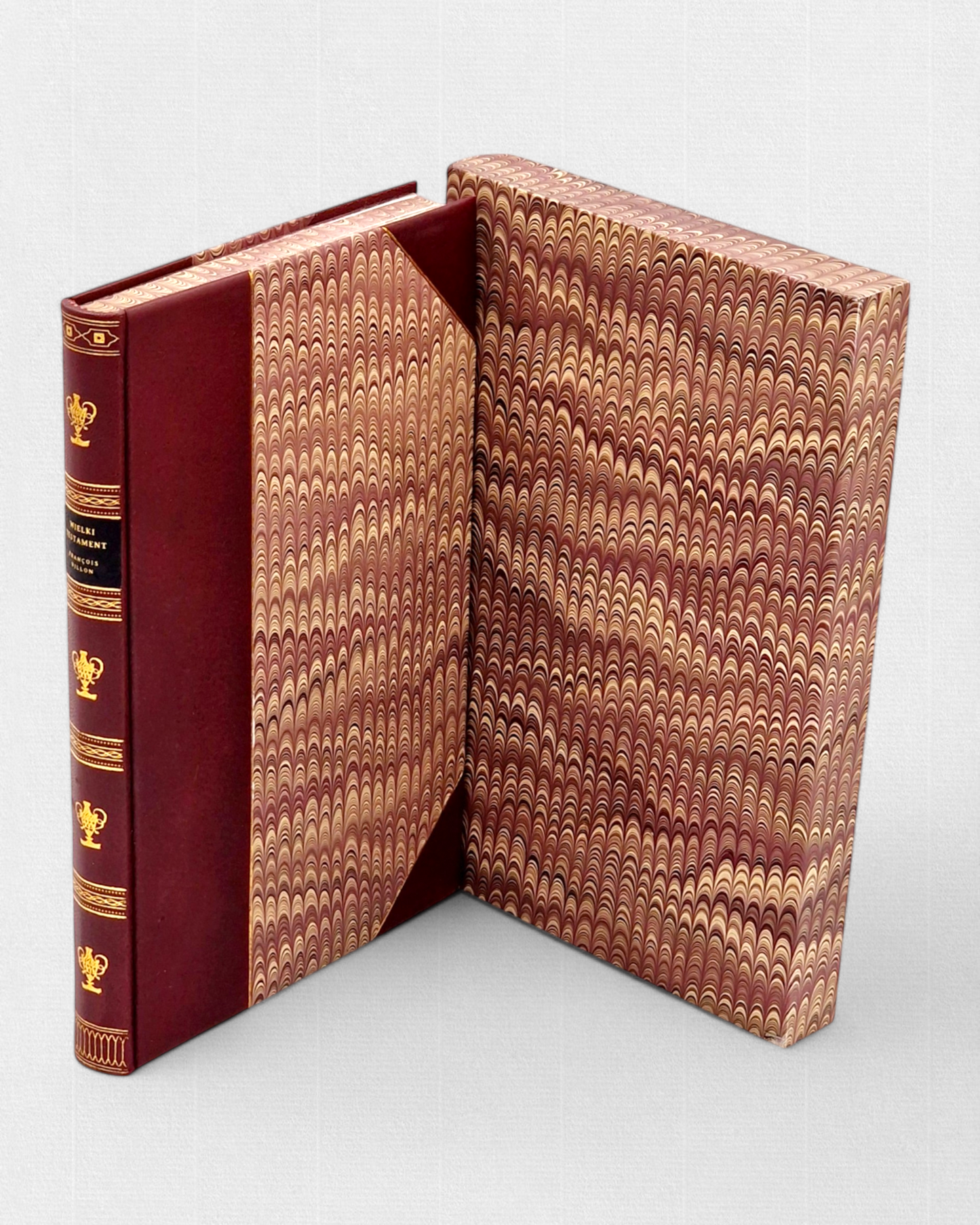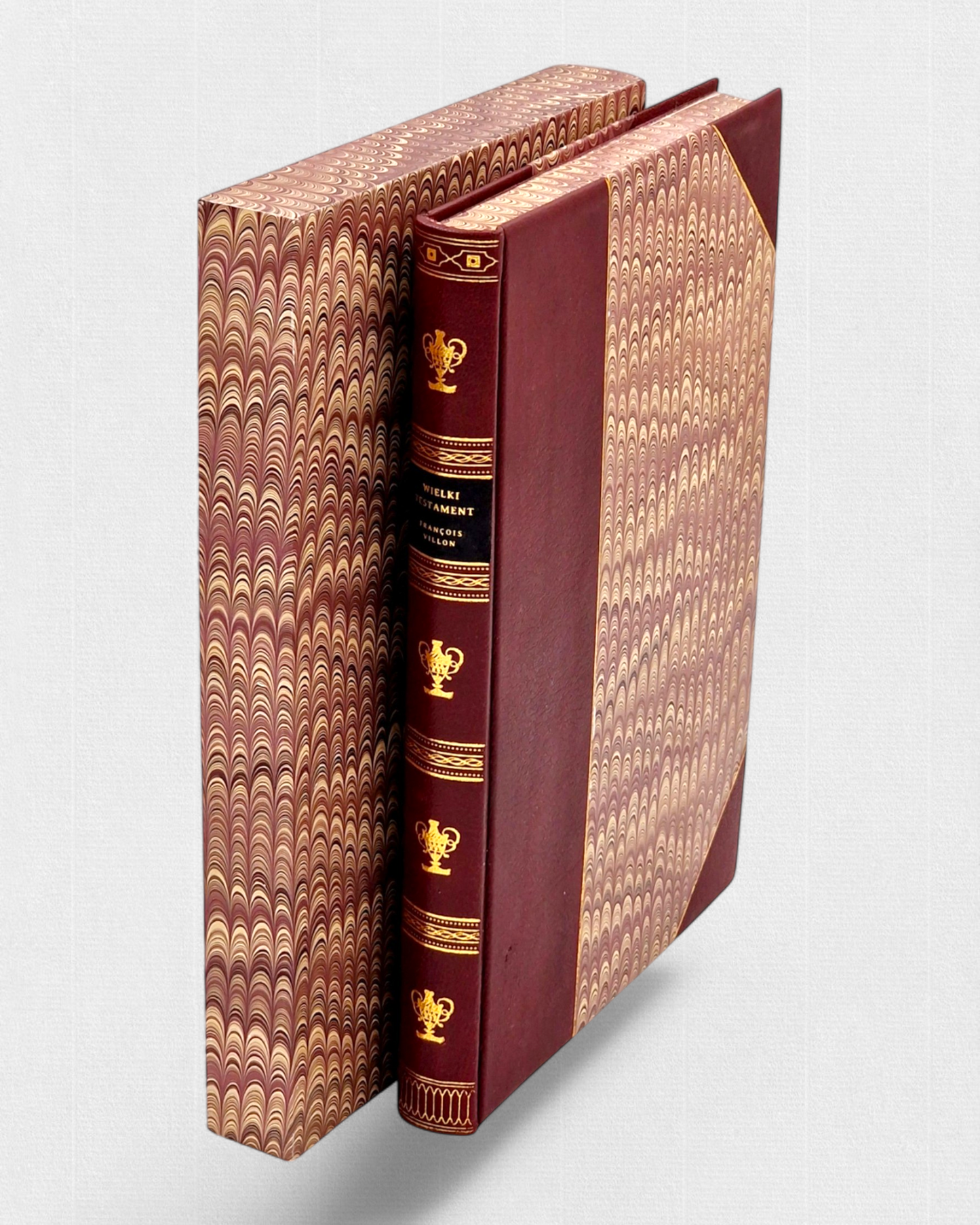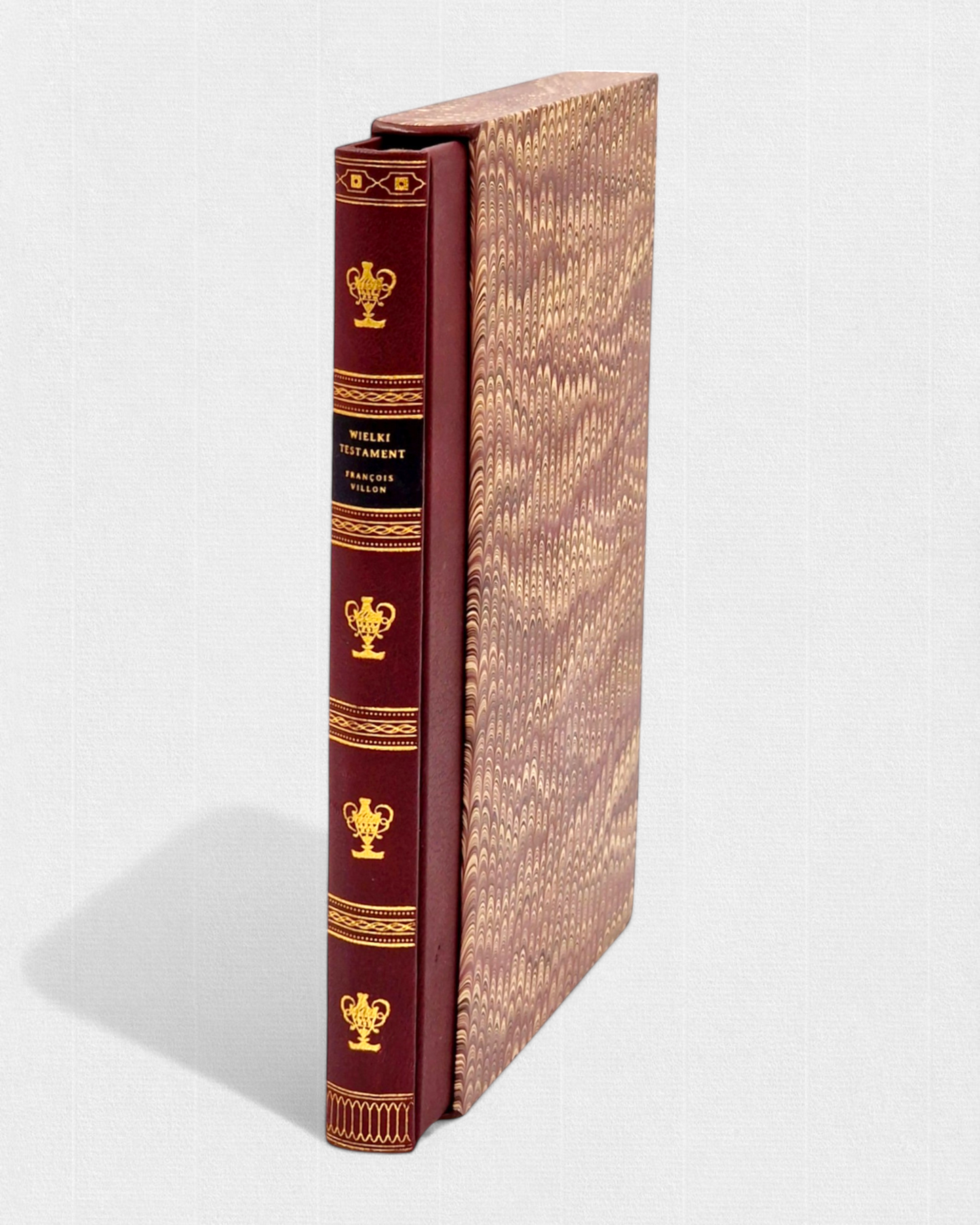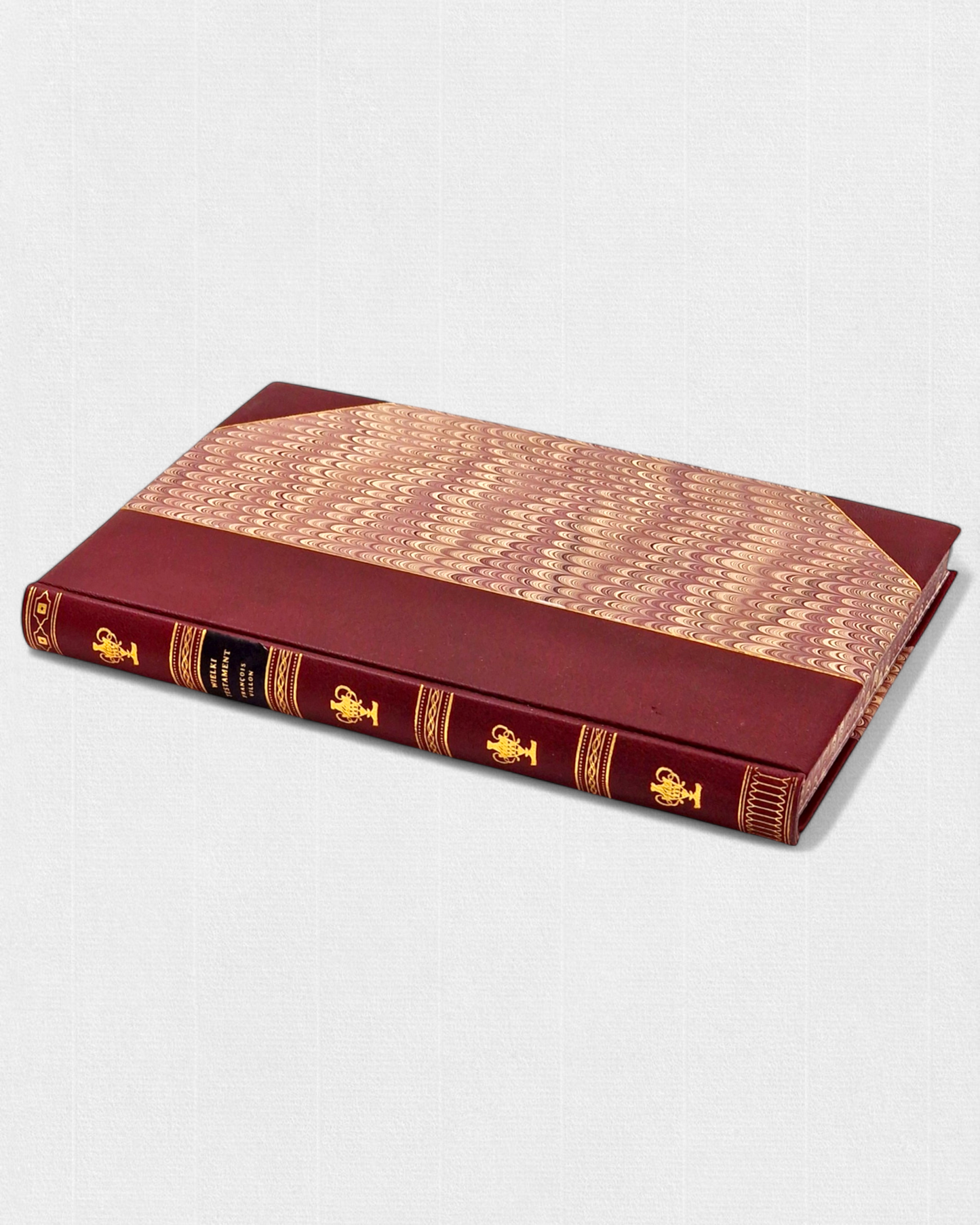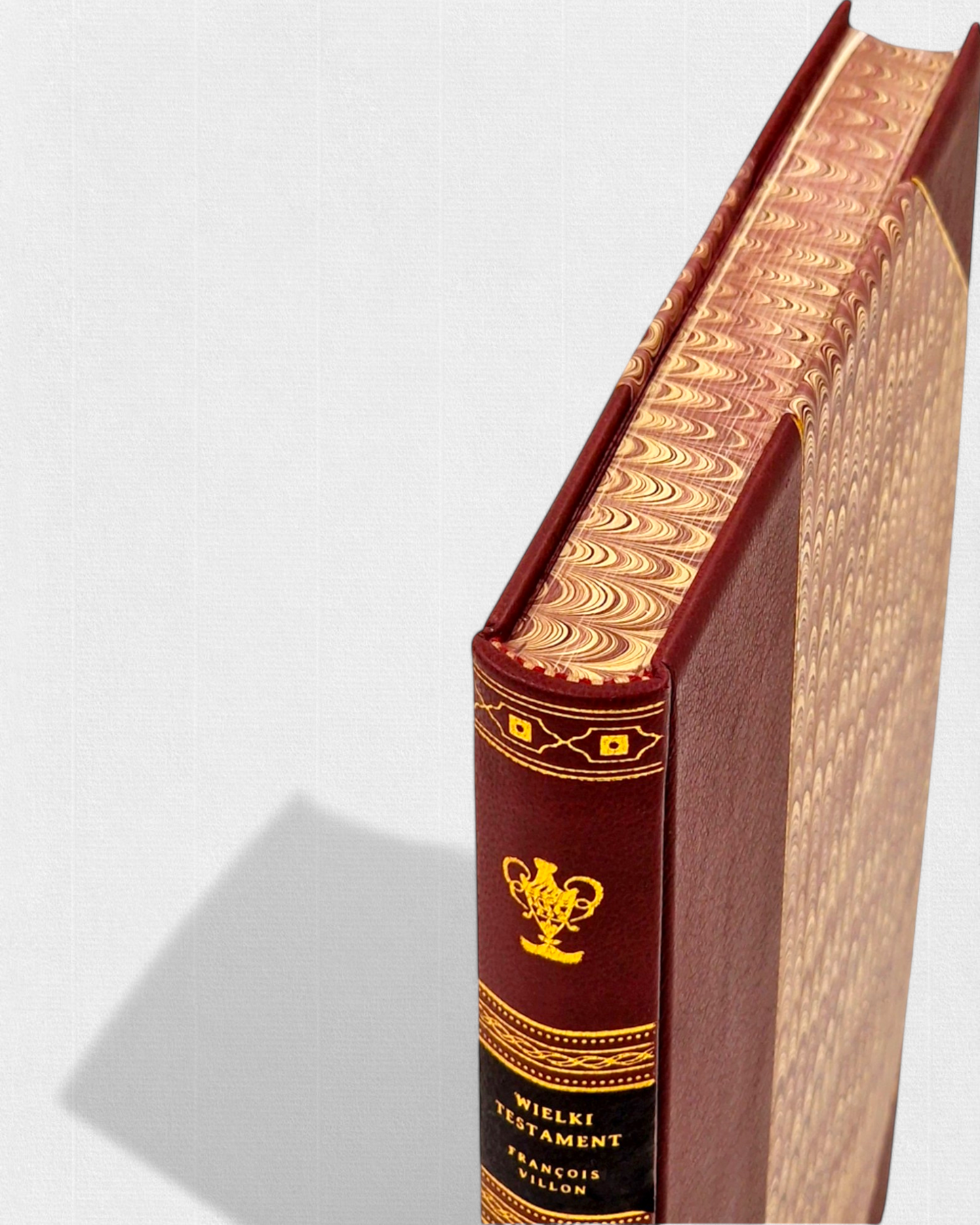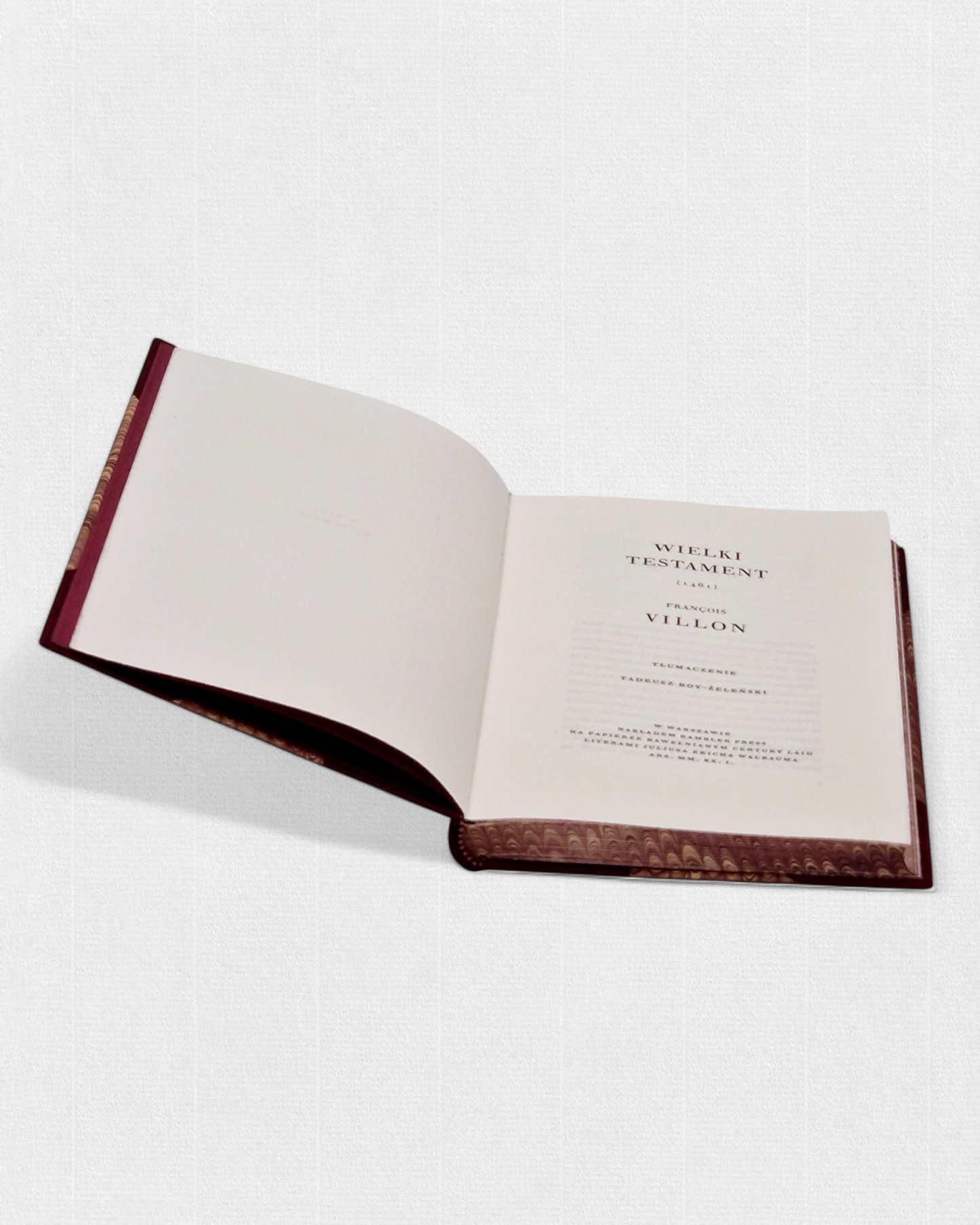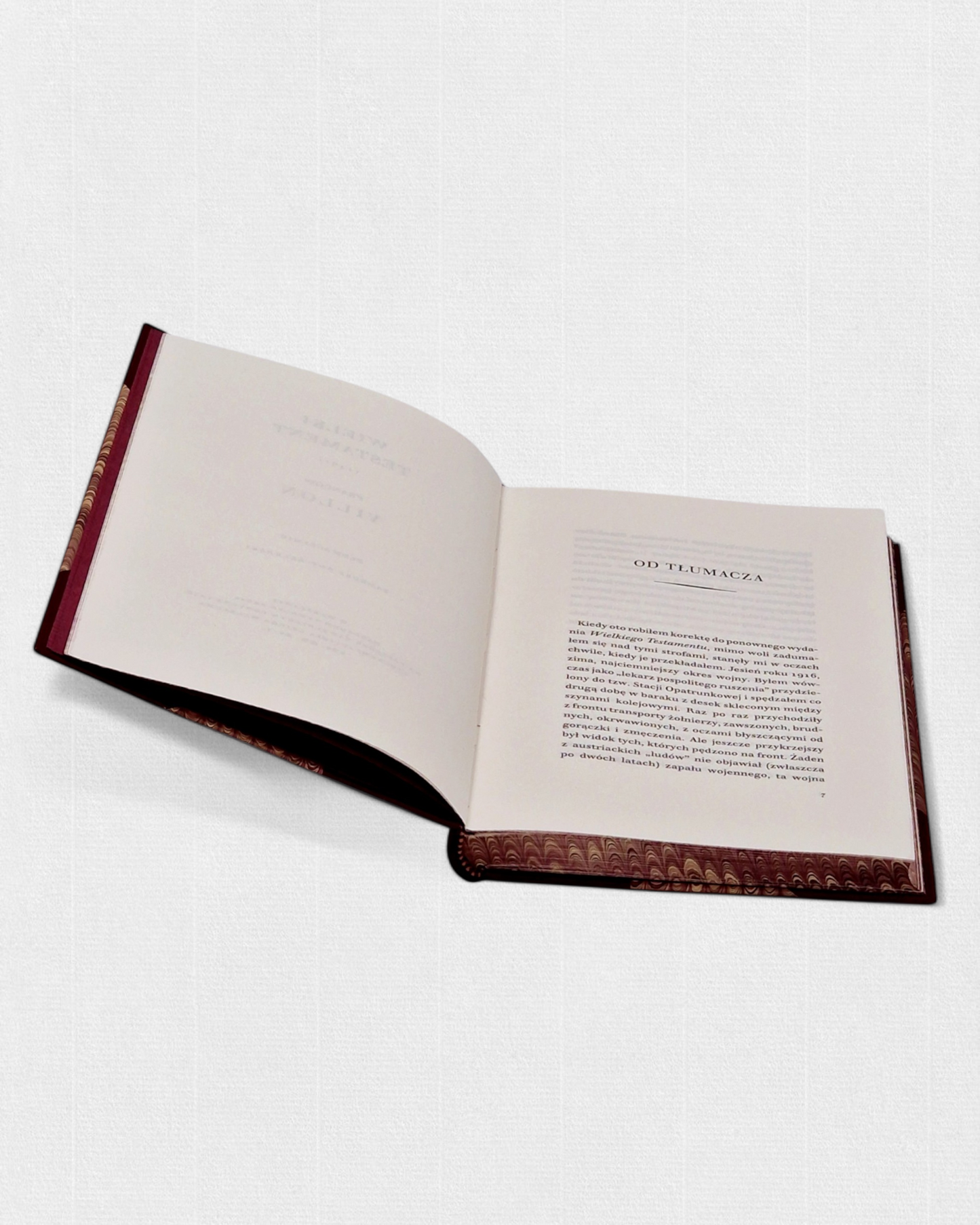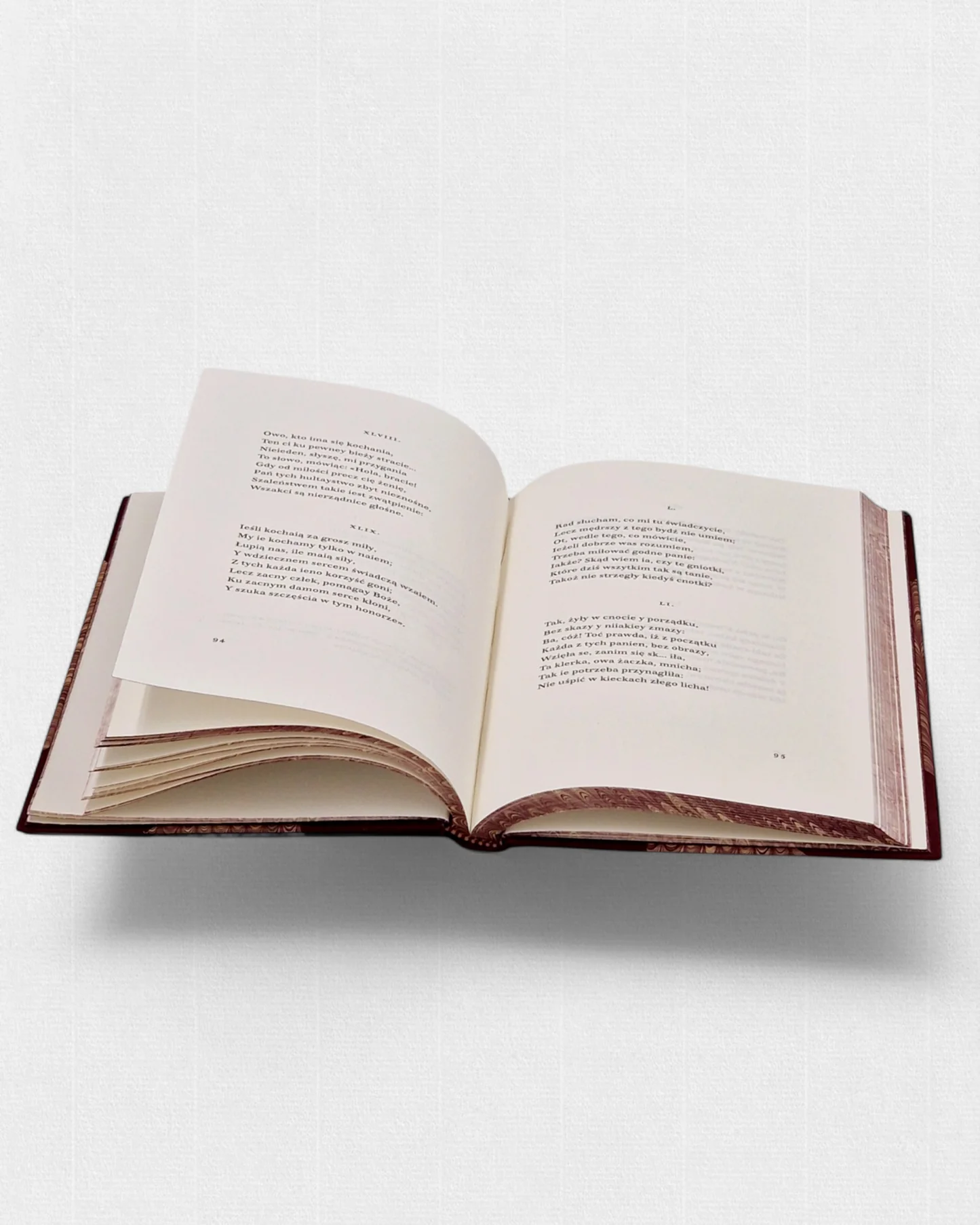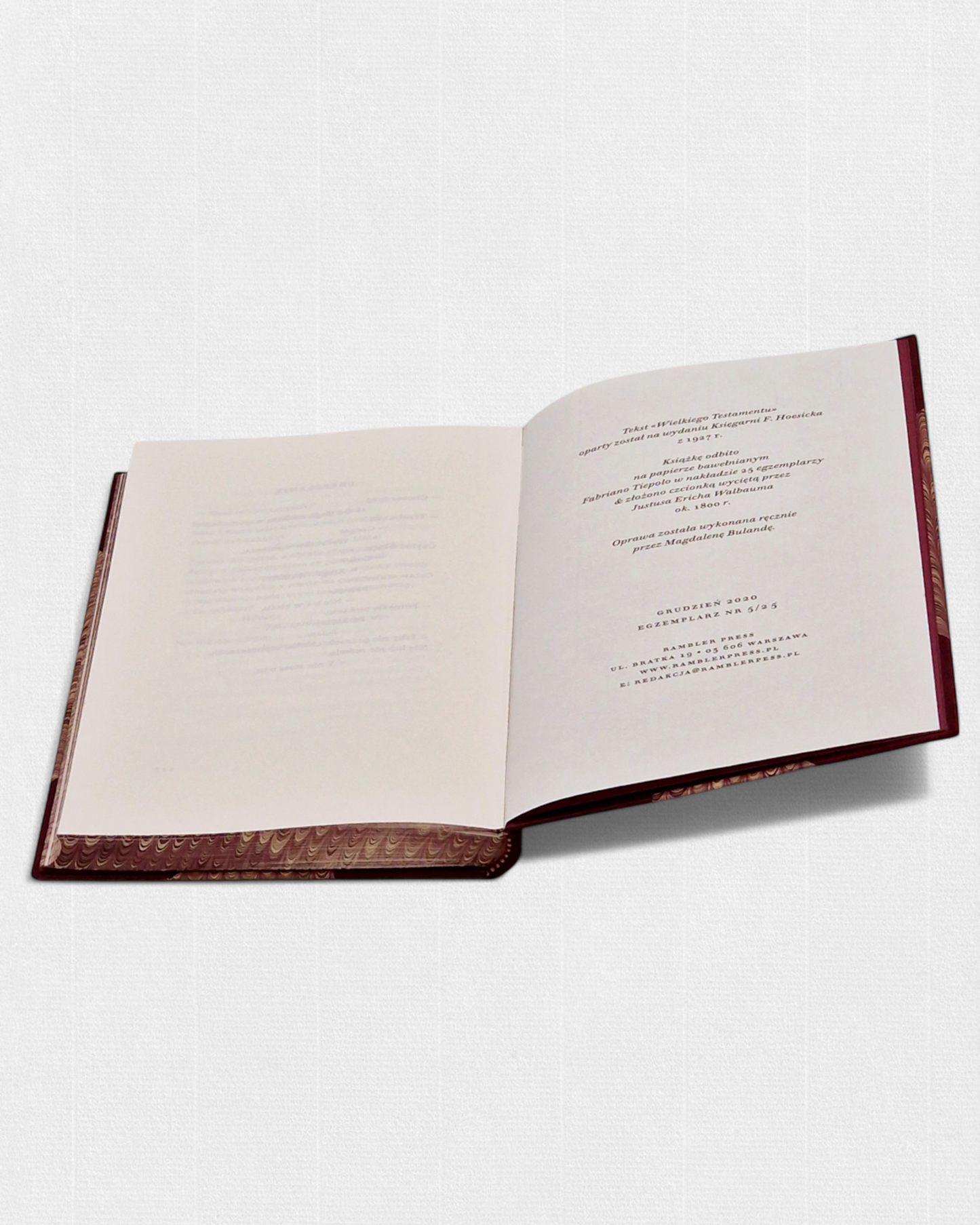SKU:
François Villon
The Great Testament
The Great Testament
Couldn't load pickup availability
The Great Testament by François Villon, in the excellent translation by Tadeusz Boy-Żeleński.
The Great Testament is a collection of poetry composed around 1461 by François Villon. It is widely considered a masterpiece of medieval literature. - Villon is the first poet of France because of his work in the field of language. He did in poetry what Rabelais later did in prose: instead of the old naive, sometimes clumsy dialect, or instead of elaborate formal twists expressing bland and conventional feelings, Villon's speech flows straight from the heart; in the heart, in the blood, he finds a direct, simple and perfect expression for his feelings: elaborate, but with a completely different, profound art! - wrote Tadeusz Boy-Żeleński in the introduction.
Our edition is based on the 1927 edition. The book was printed on Fabriano Tiepolo 130 g cotton paper and set with the Monotype Walbaum font.
Handcrafted binding, with case. Marbled block edges.
Edition: 25 copies.
Format: 174.5×249 mm, volume 224 pp. Marbled edges of the block.
